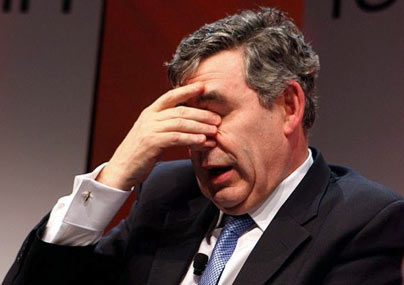As part of the SOAS’s annual Sir Joseph Hotung
 International Human Rights Lecture, I attended a conference entitled ‘Foreign Policy and Human Rights: Is there a contradiction?’ To mark this occasion, Lord Patten of Barnes, the co-Chair of the International Crisis Group and of the UK-India Round Table, presented his case on diplomacy as keynote speaker.
International Human Rights Lecture, I attended a conference entitled ‘Foreign Policy and Human Rights: Is there a contradiction?’ To mark this occasion, Lord Patten of Barnes, the co-Chair of the International Crisis Group and of the UK-India Round Table, presented his case on diplomacy as keynote speaker.Having spent 5 years as the Governor of Hong Kong, much of Lord Patten’s speech was related to his diplomatic experiences in Hong Kong. Hong Kong is prosperous and stable because it has strong British business backing, dating far back from colonial times. It is common to see “UK PLC” in China, however is dismayed that when speaking of business, the topic of human rights is rarely connected. While Dr. Henry Kissinger opened up business and diplomatic relations with China during the 1970s, he ignored the Indo-Chinese tension, which eventually led to China bombing Cambodia. China still has a policy of ‘separating business with politics’ which has led to human rights negligence in the country.
Democracies that govern under human rights law are usually more peaceful and stable that has the best standard of living and business practices, Helsinki being a striking example. However, Lord Patten warned that setting out ethical foreign policies before the government begins its term leads to failure as it is often hard to live up to. Human rights issues cannot be selective as issues interrelate to one another. Yet in the practice of business, it is difficult to practice human rights with the rigidity of commerce law. As in the case of Africa, corruption and civil wars have begun over the ownership of natural resources, and industrial growth and failure to social problems links with business practices. Oil dependency on authoritarian states like in the Arab encourages our democratic idealisation on these States.
Lord Patten stated that “we used to fear mighty states. Now we fear weak states” and eventually problems are exported from powerful, well-developed countries to weaker, less-developed countries which creates the problems of drugs, weapons trade, diseases etc. Diplomacy can be effective if links are made in all areas of foreign policy and human rights. For example, diplomacy should control industries of small arms and need to make UN embargos on arms more effective by tracing the origin of weapons, buy it up and destroy the stockpile to protect civilians. Often in the case of diplomacy, people are treated as “expandable pawns”, where the heroes of real politiques are either “authoritarians” or “revolutionists”. The longer the authoritarianism lasts, the more extreme successors will become.
Lord Patten has made it clear that there is a contradiction between human rights and foreign policy, and that economic development has direct links to social responsibility. Diplomats should get involved in global governance and explore opportunities to weaken the barriers between human rights and foreign policy if we are to reduce the effects of major global issues.















